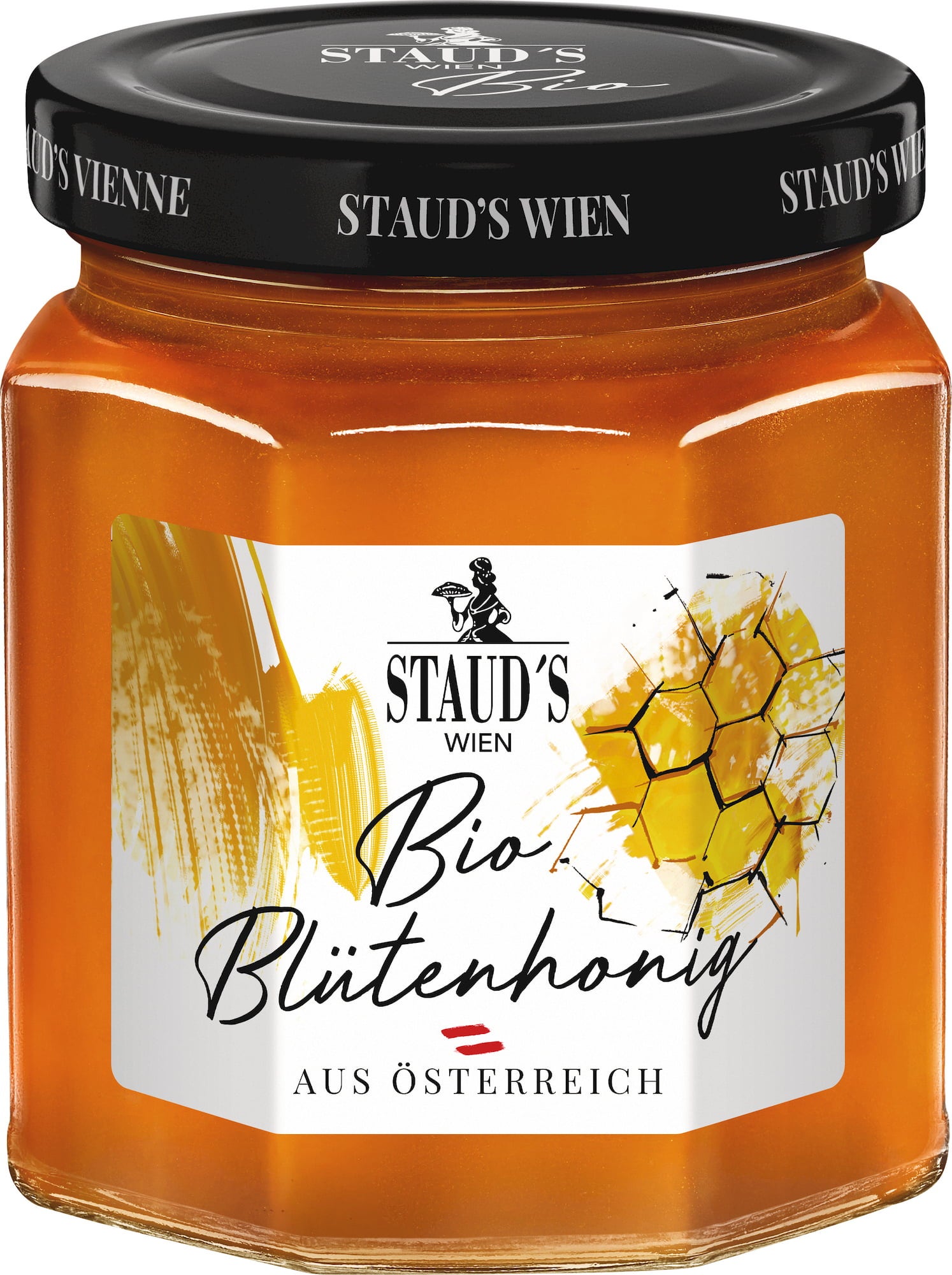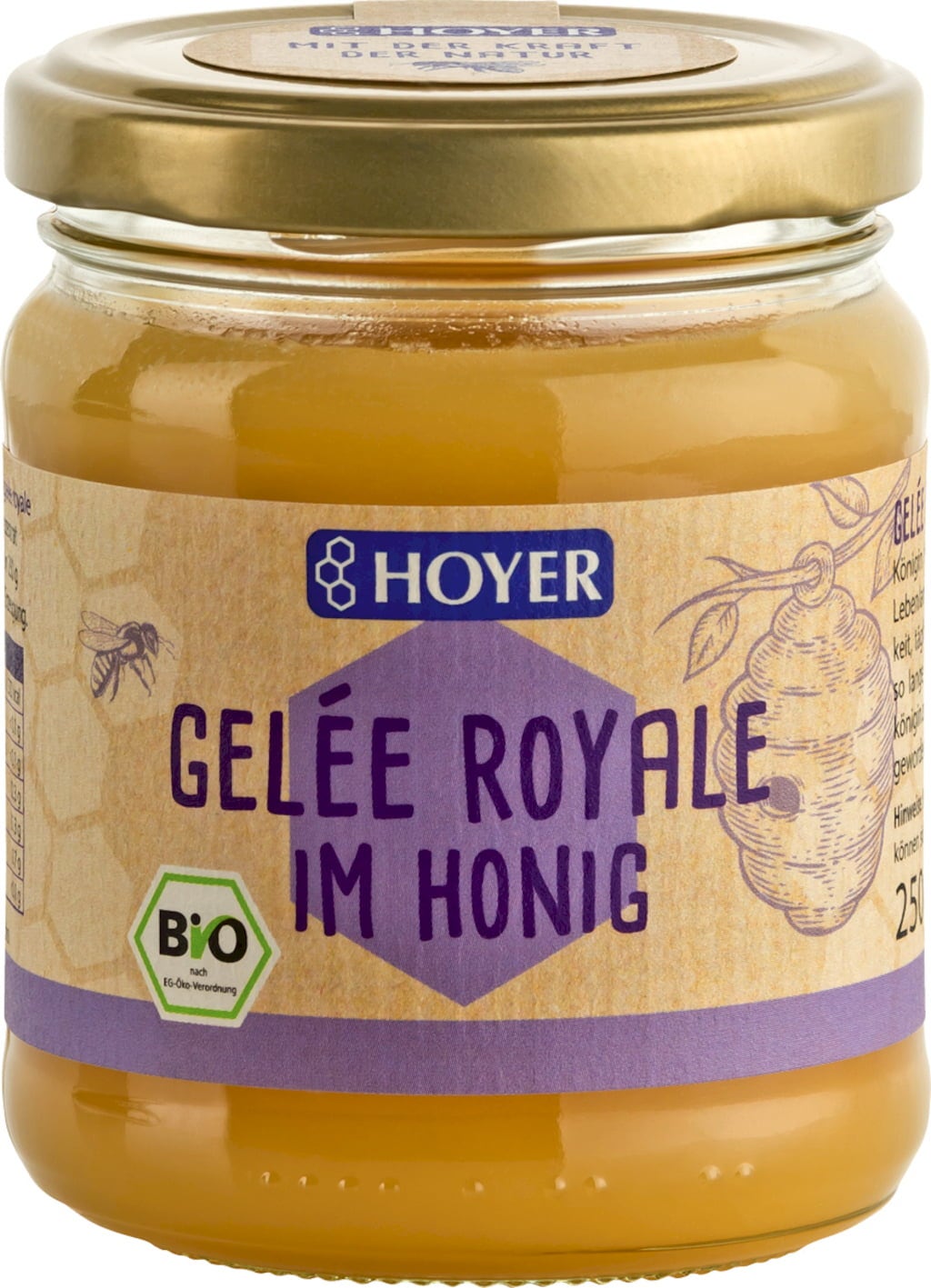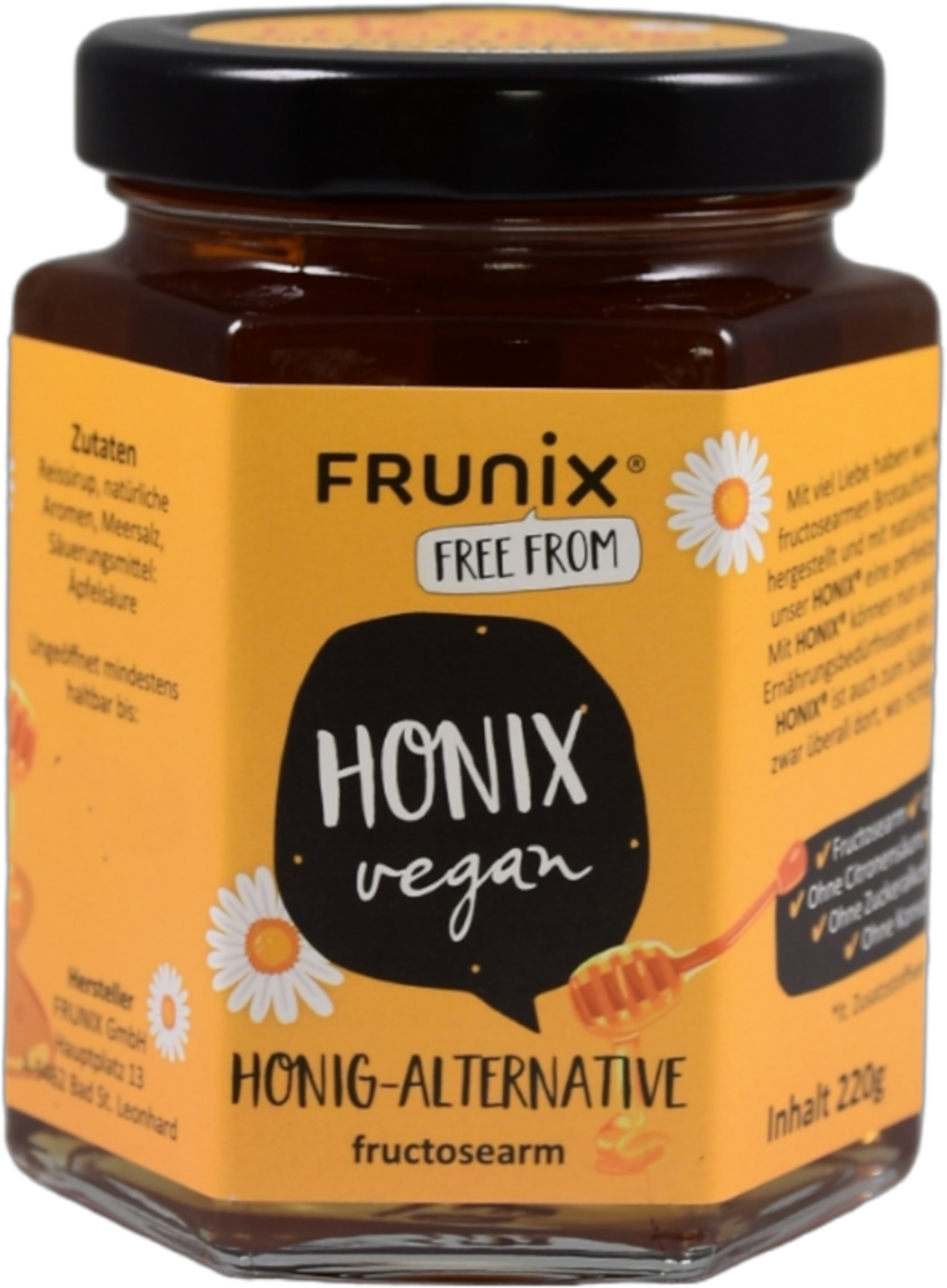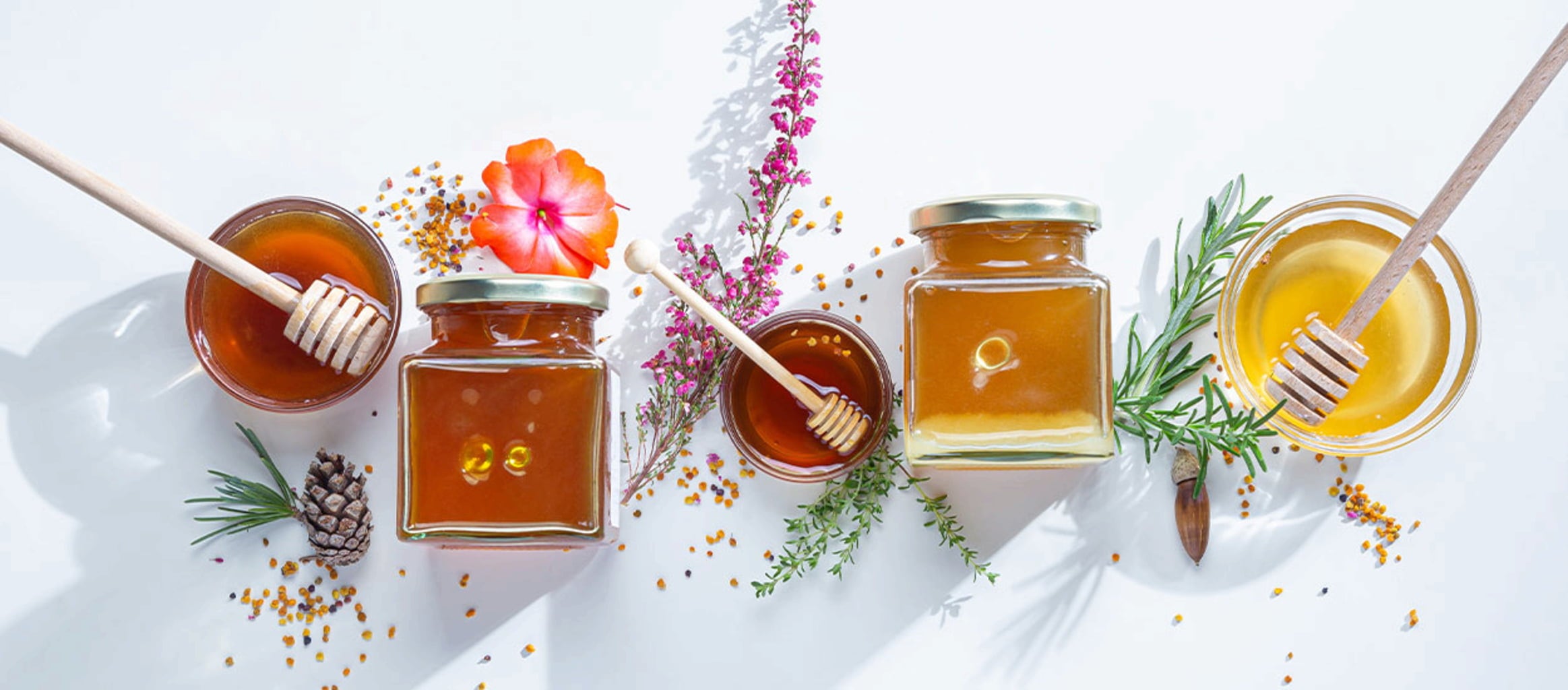Honey - A Gift From Bees
Needless to say, honey is high in sugar - up to 75% - mostly in the form of fructose and glucose. It nevertheless remains an excellent first choice to replace refined sugar more often. A variety of studies explain why this is not just a myth.
Depending on the variety, honey contains valuable minerals, trace elements, vitamins, enzymes and phytochemicals such as phenolic compounds. Studies conducted around the world have repeatedly demonstrated its health benefits. However, claims that it promotes healing or has antibacterial effects have not yet been confirmed because the results vary from type to type. So it is best to find your favourite variety of honey and enjoy it for its taste!
Honey can be roughly classified into blossom honey and honeydew honey.
Flower power
Blossom honey can be single-origin or mixed. Single-origin honey must contain at least 51% of a specific plant species. Most of the time, beekeepers place the beehives near large groupings of the same plants - eg spruce forests, clover meadows, rapeseed fields - during their flowering period. This proportion can then be much higher than 51%. Multifloral honey or mixed honey is the opposite: the end product is a blend of different flowers. Most varieties of this type of honey contain many more nutrients than single-variety honey. They are also considered to be more environmentally friendly.
Royal jelly is a particularly important product made by bees. It is a nutrient-rich milky secretion produced by worker bees that is fed to the larvae of future queen bees. It is considered by some to be a "bee superfood" because of its high concentration of special amino acids, minerals and vitamins.
You might also see the terms "summer honey" or "spring honey" on labels - this is an indication of the flowering period when the honey was made. The taste ranges from floral to fruity and tangy, from mildly sweet to spicy and bitter. Because it is a natural product, each vintage is as unique as its blossom.
Honeydew or forest honey - from aphids
As aphids feed on and digest plant sap, they excrete an extremely sweet product called honeydew. Bees collect this valuable syrup as an alternative to nectar. It is found in forests with a high proportion of conifers. The result is a honey that is dark, often reddish in colour. The taste is spicy and malty, often with a distinctive liquorice or delicate menthol finish. If it comes from deciduous tree forests, it is also called leaf honey. If it comes mainly from silver firs, it is called "fir honey".
In addition to a variety of intense aromas, honeydew honey also boasts a great texture. It remains fluid for a long time. It is therefore ideal for adding to drinks, marinades, glazes or as a garnish - for example. drizzled over goat's cheese and bacon and served as a starter. It also goes well with aromatic vegetables such as green peppers and red onions. The spicy taste ot honeydew honey is a wonderful contrast when served with mild cheese.
Is honey vegan?
Vegans prefer to avoid honey. Bees have to fly huge distances to produce just 500 grams of honey. According to some calculations, it may be as much as 2.5 times around the world! Vegans prefer to let bees enjoy the fruits of their labour and therefore avoid eating honey. They prefer eating plant-based vegan alternatives such as dandelion honey. This traditional "honey" used to be made by previous generations using dandelion flowers and sugar - real honey is not an ingredient here. However, these vegan products lack the valuable nutrients that honey is so often praised for.
Whichever variety you choose, honey is an extraordinary natural product that is worthy of our respect. It is a gift from a fascinating world of bees and flowers and forests.
Related products
-
 4.5 (2)
4.5 (2)STAUD‘S Organic Blossom Honey from Austria, 37 g
- Best organic quality
- Naturally sweet
- 100% from Austria
CHF 1.50 (CHF 40.54 / kg)Delivery by April 28
-
 4.8 (4)
4.8 (4)HOYER Organic Royal Jelly in Honey, 250 g
- Important vitamins & amino acids
- A purely natural product
CHF 6.05 (CHF 24.20 / kg)Delivery by April 28
-

Frunix Honix Spread, 220 g
- From rice syrup
- Low fructose honey substitute
- Free from gluten, sorbitol & lactose
CHF 5.55 (CHF 25.23 / kg)Delivery by April 28
Magazine Articles:
Discover Piccantino:
-
Switzerland: Free standard delivery from CHF 69.90
-
Delivery in 3 business days.
More than 10.750 products
Secure payments
with SSL encryption technology


